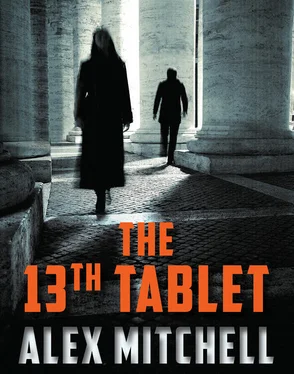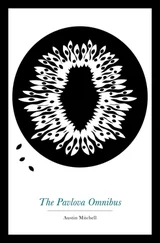‘I thought it had stopped?’ she asked.
‘Only on the 25th of November.’
‘You mean things have only calmed down in the last week?’ asked Mina.
‘Yes. We didn’t think you’d be returning,’ he said, shooting rapid glances left and right before adding, ‘I wouldn’t want to be an American right now. The jihadists think that the US only support the Kurds, so they’ve been ambushing many American soldiers and civilian contractors. To tell you the truth I don’t feel that bad about targeting some of those contractors, there’s nothing civilian about them.’
‘I’m sorry you feel that way,’ said Mina tersely.
He looked at her, a little taken aback by her cold tone. ‘On the other hand,’ he stammered quickly, ‘the jihadists are cowards. They’ve murdered Iraqi National Guard officers too. You know Muhammad, the short broody student who’s in your class on cuneiform writing?’
‘Yes, what about him?’
‘His uncle was National Guard. He received insulting letters, saying he was a traitor and warning that he’d better find another job. He dismissed the threats and they killed him. Do you know that bodies of beheaded officers have been found scattered all over the city?’
‘My God, poor Muhammad,’ she said, her eyes wide with fear.
‘Madam?’ Hassan asked, worried about her horrified expression, ‘I apologise if I’ve scared you.’
‘Aren’t you scared?’
‘There’s nothing we can do about it,’ he said with the resigned calm of a young man who had seen too much fighting in his short lifetime.
He changed the subject abruptly as he stopped in front of his battered car, ‘So, Madam, what do you think of my new Mercedes?’
Mina suppressed a smile as she looked at the sorriest car she had ever witnessed. It looked like an art installation that had not quite made it to a contemporary art gallery. ‘It’s… it’s… does it work?’ she asked, trying to hide her doubts.
‘Yes Madam. But you’re missing the point. It’s mine !’ he added with a large grin.
‘Oh. Right, my apologies. What a beautiful car! Listen, about the drive, I’ve changed my mind. Do you think you could first drop me at my flat in town and pick me up later? I should be ready in an hour’s time.’
‘No problem Madam.’
‘And stop calling me Madam. Call me Miss, or just Mina.’
‘Yes Miss Mina.’
‘And…’
‘Yes, Madam?’
‘Speak to me in Arabic. We aren’t in class right now, are we?’
‘How will I practise my English?’ he asked, wringing his hands in mock distress.
‘And how will I practise my Arabic?’ she answered.
He smiled and they drove off.
Mina loved speaking Arabic and listening to Hassan’s comforting Mosuli accent. Her own accent had transformed beyond recognition. When she had first arrived she spoke classical Arabic, which she had learned at university. Although her parents spoke Arabic, they had always spoken English with her. It had taken her over a year to lose her literary turn of phrase and pick up the local dialect and, more importantly when in the field, the local slang. Even so, the incongruity of some of her sentences still made her students laugh. Luckily most of her classes were in English.
As she looked out at the familiar Mosuli landscape rolling past her window, Mina wondered whether she really was that glad to be back. She had a nagging feeling that she was running away from everything that made sense. Just over a year ago she had put her PhD scholarship at Columbia University on hold and left New York to take up a badly-paid lecturing position at the Department of Cuneiform Studies at the University of Mosul.
Nigel, her Columbia professor in Middle Eastern Studies had been very disappointed. She was such a promising PhD student and her dissertation on Early European explorers in ancient Mesopotamian cities would suffer greatly from her decision to leave so abruptly. Her parents too were appalled by her decision, despite being all too familiar with her passionate nature. This time it was different: they truly couldn’t understand her motives. They had been born in Iraq, suffered under Saddam Hussein’s rule and left the country to start a new life in America. Mina had been born in the US and brought up as a New Yorker.
Yet, Mina had felt uprooted and torn inside. Her parents had given her comfort, peace and freedom but for many years, she had felt betrayed, or more precisely, failed by them. They were unusual first generation immigrants; they didn’t live within an Iraqi community and they worked very hard at trying to forget where they came from. In high school, Mina had never fitted in. With her long black hair and dark eyelashes, almond-shaped eyes and her chiselled nose, she was different from the other girls in her class. It was only at the age of fifteen, when she started reading about ancient Mesopotamia, the land ‘between the two rivers’ — the Tigris and the Euphrates — that she began to yearn to know Iraq properly. It was her way of coping with a fractured identity. A few years later she was completely immersed in the study of the archaeology of the Near East and cuneiform writing at Columbia. For the first time she was proud of her heritage and no longer felt self-conscious about her not-so-American surname.
Then the war in Iraq broke out. At first, most Iraqi people were filled with elation; it was an epic tale of liberation and the end of Saddam Hussein, the tyrant. But after a few years, with American forces still on the ground, Mina wondered what good came from their lingering presence. Depending on what news she read, she felt pulled one way or the other. She was finding it more difficult than ever to reconcile the two sides of her American-Iraqi identity.
When the terrible lootings of the Baghdad National Museum occurred in 2003, she rushed to Iraq to help out in any capacity she could, leaving in her wake a confused ex-boyfriend, angry parents and a PhD on hold.
Of course, looters had been targeting archaeological sites all over the country for years. She remembered a scholar from Chicago University stating that gangs had been exporting ancient artefacts since the early nineties, and nothing had really been set up to challenge them; just like in Afghanistan, with the destruction of the Bamiyan Buddhas by the Taliban in 2001. The Taliban pretended to the world that those Buddhas were insulting to Islam, and declared that all idolatrous images of humans and animals were to be destroyed. Cowardice and lies. It had been a smoke screen; in reality they had been secretly selling ancient artefacts for years alongside heroin to fund their failing economy.
But the Baghdad lootings were a different story. Over 80,000 cuneiform tablets, some dating back to 3000 B.C.E. were stolen and hundreds of priceless statues and relics from the birth of civilisation had disappeared. The UNESCO director general, Koichiro Matsuura, had called for an immediate ban on the international trade in Iraqi antiquities and had sent a team of specialists to assess what action could be taken.
Mosul, where Mina’s parents came from, had also been plundered and the museum there had suffered heavy losses. So, despite her parents’ angst, she moved into their tiny flat in Mosul. Before emigrating to the US, Mina’s father had passed on the flat to his brother and Mina moved in a few months after her uncle died. On arrival, Mina made it known at Mosul University and in more shady circles that she would help authenticate the many artefacts, and especially cuneiform tablets, which appeared sporadically on the market and return them to the city’s museum, no questions asked. Many civilians had stolen art as an act of rage and hopeless revenge on Saddam. But many now wanted to return them, without getting into trouble with the new authorities.
Читать дальше












